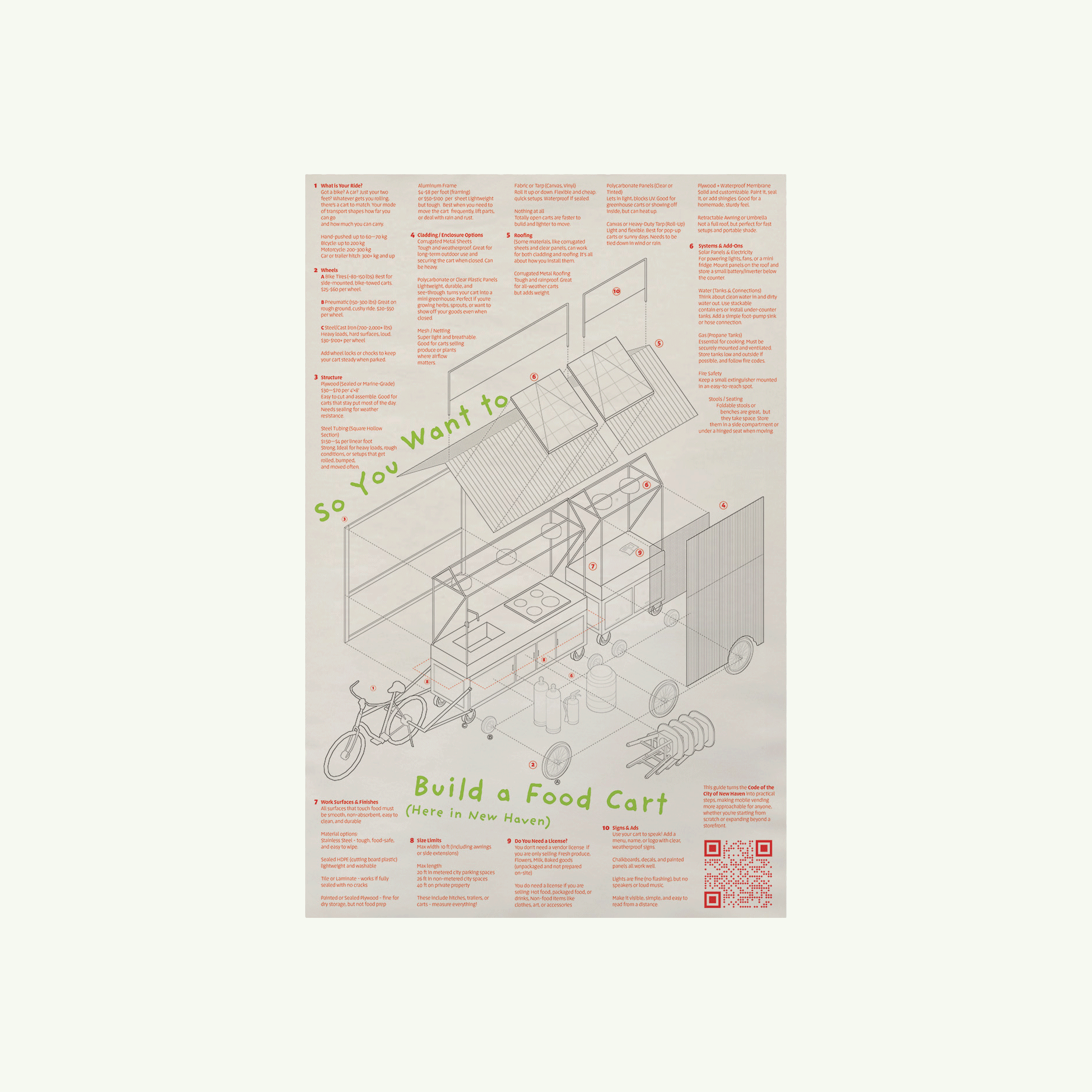So You Want to Build a Food Cart
2025

The state of Connecticut ranks number one in the U.S. for direct sales from farmers to consumers, yet food accessibility remains a pressing challenge in the city of New Haven. This project uses design as a tool to engage with policy, zoning, and decision-making at the urban scale, proposing mobile food vending as a spatial and legal strategy to expand access for local food actors.
The work unfolds across three layers:
- A spatial and legal reading of the city’s mobile vending constraints and potentials.
-An illustrated manual that translates regulations into accessible design guidelines for mobile carts.
-A speculative urban proposal that reimagines how streets, sidewalks, and adjacent buildings might support shared food infrastructure.
These strategies challenge the vehicular logic of vending and invite more inclusive, flexible forms of participation in the urban food system.











